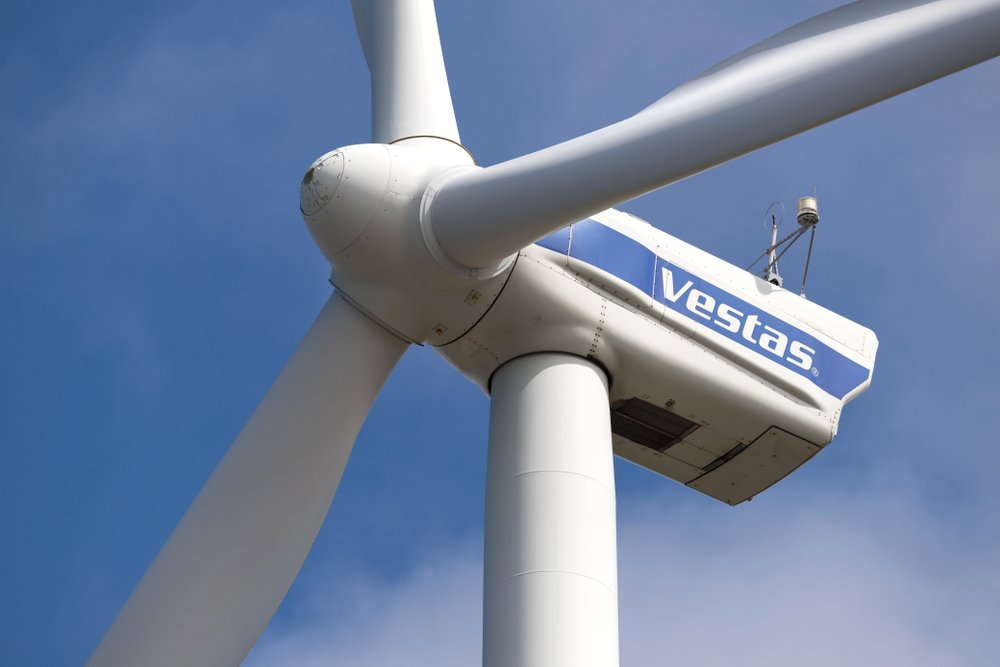The Danish wind turbine manufacturer Vestas is putting an important expansion project on hold. The planned site in Poland was intended to supply rotor blades for large offshore wind farms, but demand for wind energy is declining. Instead of growth, a phase of consolidation is now underway. The company is reacting to the weak market development, which is currently also affecting other manufacturers of offshore wind turbines. (taz: 21.10.25)
Vestas suspends expansion plans in Poland
The company had acquired land in Szczecin in 2023 for a new production facility. The plant was intended to manufacture wind turbine blades for Vestas’ 15-megawatt turbines. Over 1,000 jobs were expected to be created. Now the project is on hold – a clear indication that the market for offshore wind farms in Europe is losing momentum.

The Danish group will in the future focus more on regions with long-term stability and predictable order volumes. The Polish factory was originally intended to supply not only Europe but also international markets. However, since demand for wind energy is stagnating in its core market, the manufacturer is prioritizing cost discipline over risky expansion.
Onshore production remains unaffected
While the offshore plans are on hold, Vestas’ onshore production continues. The company operates two sites in Poland: a nacelle assembly plant in Szczecin, which started operations in January 2025, and a rotor blade manufacturing facility for wind turbines in Goleniów, which has been active since 2009. Together, these plants employ more than 1,900 people.
According to the company, deliveries for ongoing wind energy projects remain secured. The wind turbine manufacturer produces similar wind turbine blades in Denmark and Italy, thus avoiding bottlenecks. The decision to halt construction demonstrates that Vestas is focusing on efficiency and adaptability – qualities that are crucial for survival in the industry.
Financial restraint and global uncertainty
How much money has already been invested in the construction remains unclear. A spokesperson for the wind turbine manufacturer declined to provide figures. However, observers suspect that Vestas has invested considerable resources in preparation, planning, and site development.
At the same time, developments outside of Europe are also dampening spirits. In the USA, the government halted the “Revolution Wind” offshore project, a joint venture between Ørsted and Skyborn Renewables. This decision shows how sensitive the entire wind power industry is to political intervention.
Vestas Defies Market Uncertainty
While Ørsted suffered a 30 percent drop in its share price following the halt of a US construction project, Vestas’ stock remained stable. Investors apparently appreciate the company’s cautious approach. Instead of pushing risky projects, Vestas is strengthening existing production lines and leveraging synergies in Denmark and Italy.
Despite weaker demand, the goal remains clear: to maintain its position in the European offshore wind market. The delay in Szczecin does not represent a retreat, but rather a strategic pause. Whether the planned Polish factory for rotor blades will one day be realized depends on the recovery of the European market.
Wind Energy in Transition
The current construction halt illustrates that even industry leaders like Vestas face the challenges of an uncertain energy market. The company is focusing on flexibility and sustainability to remain successful in the long term. The future of offshore wind farms depends crucially on stable regulatory frameworks and clear political signals.
As long as these are lacking, the plant in Szczecin remains merely a vision – and the European rotor blades will continue to spin elsewhere for the time being.
